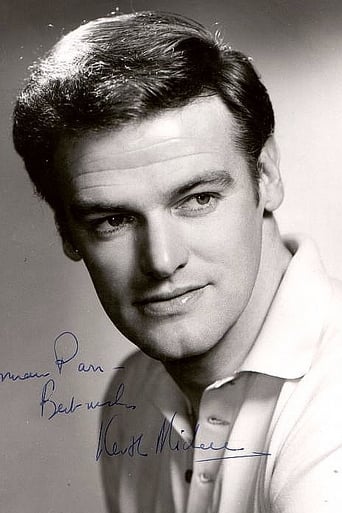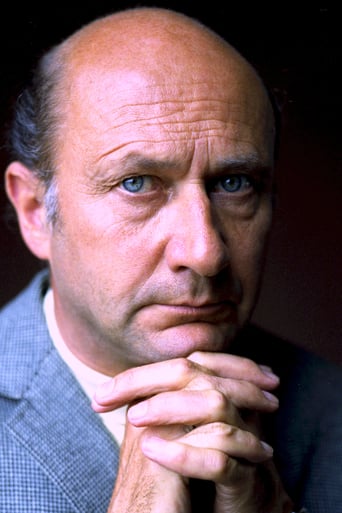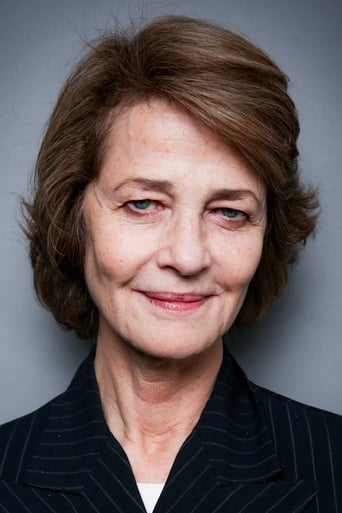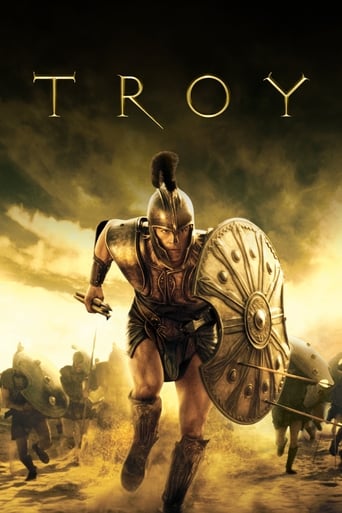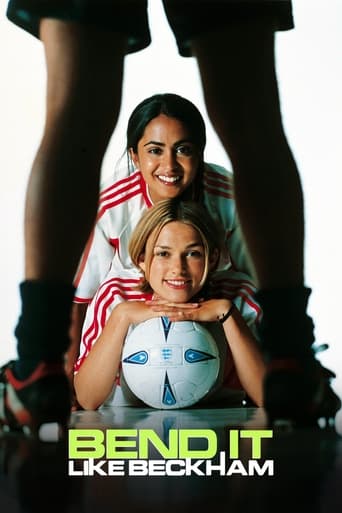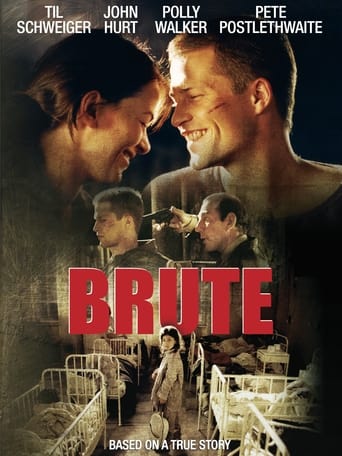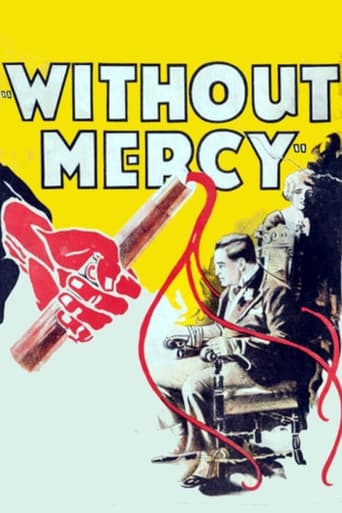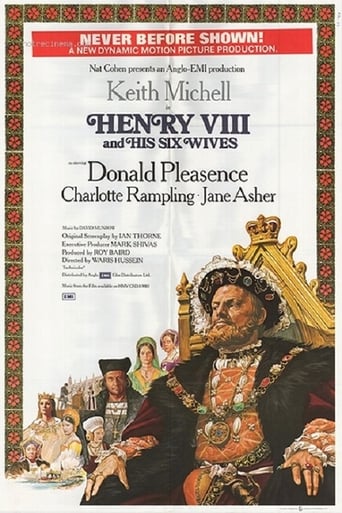
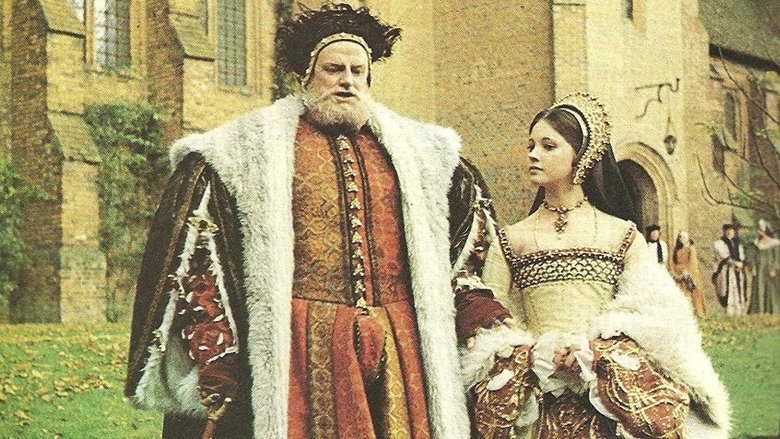
Henry VIII and His Six Wives (1972)
Adapted from the BBC2 serial The Six Wives of Henry VIII. 1547, King Henry VIII's life has taken a turn for the worse and he is forced to look back over his life and the many loves which had brought him his three children, only one of which was the desired male heir to secure the Tudor dynasty.
Watch Trailer
Cast
Similar titles


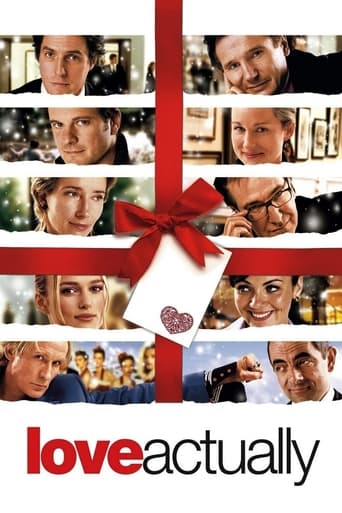
Reviews
In truth, there is barely enough story here to make a film.
At first rather annoying in its heavy emphasis on reenactments, this movie ultimately proves fascinating, simply because the complicated, highly dramatic tale it tells still almost defies belief.
Great example of an old-fashioned, pure-at-heart escapist event movie that doesn't pretend to be anything that it's not and has boat loads of fun being its own ludicrous self.
The movie's not perfect, but it sticks the landing of its message. It was engaging - thrilling at times - and I personally thought it was a great time.
I had remembered watching a tiny bit of this British film in secondary school when I was doing history, I knew that I had to see the whole thing at some point in the future, so when I got the opportunity I did. Basically set in Tudor England, King Henry VIII (Keith Michell) is on his deathbed, he reminisces on his long reign, and especially the crucial part his six wives played, without producing the male heir he desired to take his place and prevent civil wars. His first wife and queen was Spanish princess Katherine of Aragon (Frances Cuka), but all of the children she produced died, apart from daughter Mary, so he annulled the marriage and the divorced, this was his longest marriage, for 23 years. Henry's second wife was Anne Boleyn (Charlotte Rampling), while courting her she refused to sleep with Henry until they were married, she was a mysterious woman, with a sixth finger, so some believed her to be carrying out witchcraft, she also failed to produce a son, only daughter Elizabeth, they divorced, and she was later executed and beheaded for "infidelity", they were married for over 2 years. Henry's third wife was Jane Seymour (Jane Asher), who Henry met with the help of chief minister Thomas Cromwell (Donald Pleasence Donald Pleasence), protégé of Cardinal Wolsey (John Bryans), she does finally give Henry a son, Edward, but she dies soon after the birth, they were married for just over a year, and Edward later died aged 15 from tuberculosis. Henry's fourth wife, who he was advised to marry for diplomatic reasons, with Cromwell pushing for the lady, was German princess Anne of Cleves (Jenny Bos), Henry was initially shown a portrait of her, but was disappointed by her true appearance, he reluctantly marries her, but after only 6 months they divorce. Henry's fifth wife was Catherine Howard (Lynne Frederick), Anne Boleyn's young cousin, she was pressured to marry him by her uncle, but Archbishop Thomas Cranmer (Bernard Hepton) informs Henry she had liaisons before the marriage, he initially refuses to believe it, but Cranmer secures a confession, she also admits to an affair with Thomas Culpepper (Robin Sachs), she is beheaded, they were married for just over a year. Henry's sixth and final wife was Catherine Parr (Barbara Leigh- Hunt), he approached her while elderly, she is at first reluctant to marry, but Henry confesses to needing companionship, she becomes a loving stepmother to the royal children Mary, Elizabeth and Edward. After all the flashbacks have ended it returns to Henry VIII in his final moments of life, with Catherine Parr and Princess Mary by his side, Archbishop Cranmer is summoned to take his final confession, but while holding his hand, and before he can finish, Henry VIII finally dies from chronic heart failure. Also starring Michael Gough as Duke of Norfolk, Brian Blessed as Earl of Suffolk and Michael Goodliffe as Thomas More. Michell had previously played Henry VIII in the six-part television series The Six Wives of Henry VIII, obviously each episode focused on each of the six wives, he gives a standard performance, I agree Pleasance is more interesting as the devious Cromwell, and Cranmer gets his moments, as do all the supporting cast members, the costumes are good as well, I paid no attention at all to the political stuff, I just concentrated on the King with each wife, especially number 2, as an overall film, it's not a bad historical drama. Worth watching!
I first saw this film, aged about ten, as a result of my great interest in the famous King Henry and I think possibly also because I was in the middle of writing a short play about him. It's been a while since I saw this, but - looking back - I think I was perhaps a bit young to view it back then. There's nothing explicitly gory or violent but some scenes - on reflection - are perhaps a bit much for children of that age.Nevertheless, it does tell the story of Henry and his wives, even if you get the sense that some things (the real Catherine of Aragon, for instance, was pregnant about six times, but you'd never know it from this - one might get the impression that she only had two children before Henry tired of her) are brushed over a bit. In keeping with the real time span, a lot of time is concentrated on Catherine and her successor Anne Boleyn although I seem to remember that nothing much is made of, for instance, Henry's need to marry the pregnant Anne before she bore the future Elizabeth I.Although the story is told in flashback and some major points in history (eg. the dissolution of the monasteries) are dealt with through scene montages, you do get a flavour of Henry VIII's character and life - notice how the plainly-dressed Jane Seymour becomes more decorated as she gains the king's notice - and even an idea of communication in Tudor times (he decided to marry Anne of Cleves because he saw a miniature of her). It occurs to me that the focus on Henry may be a disadvantage - we don't see Anne of Cleves adapt to life as the King's sister, we don't see the Holy Roman Emperor enraged when his aunt Catherine of Aragon is being divorced, we don't see much of the infant Elizabeth I at all.One opinion this film formed for me was the idea that Katherine Howard was very much a victim of fate. I have read that the real woman was sexually precocious (although this film merely gives the impression that she was a bit flirty) because of her grandmother's lack of moral guidance, but this interpretation made me think that the Duke of Norfolk, head of the Howards, suddenly jumped on an opportunity to get into Henry's good books by pushing a young family member under the King's nose (apparently unaware of his teenage niece's past - she must certainly have been the least suitable member of his family to have been promoted in this way) without bothering to properly consider his actions.Little is made of Catherine Parr - after Henry's dispatch of his fifth queen - and one gets the impression that he settled into a happy family life, failing to mention that he did in fact have the unfortunate woman investigated due to her religious convictions. However, my A-Level history lessons led me to believe that mediaeval kings were quite at liberty to be ruthless despots, and Keith Michell certainly gives us an idea that Henry was that way inclined.
**WARNING SPOILERS - for those of you unaquainted with English history**This is an excellent period drama with a good cast including Donald Pleasence (Thomas Cromwell), Charlotte Rampling (Anne Boleyn), Jane Asher (Jane Seymour), Lynne Frederick (Catherine Howard), Michael Gough (the Duke of Norfolk) and Brian Blessed (the Duke of Suffolk) and an excellent portrayal of King Henry VIII by Keith Michell.Michell is very good as Henry VIII, portraying the King from his youth, married to the Spanish Katherine of Aragon, to his old age with the wife who would out-live him, Catherine Parr. Over this period of time Michell undergoes a serious transformation from an energetic young king to an immense gout-ridden old man. However, Michell's transformation is not merely cosmetic and he manages to change his voice, posture, bearing and the whole character of the king.The story charts the six marriages of King Henry VIII. First his marriage to Katherine of Aragon (Frances Cuka), mother of the future Queen Mary "the Bloody", for whom he had genuine affection but whose inability to conceive a son resulted in Henry's divorcing her and the King's historic break with the Catholic Church and their "Bishop of Rome".A slightly weightier Henry indulges in a passionate love affair with Anne Boleyn (Rampling), mother of the future Elizabeth I "the Virgin Queen", which ended with the King's paranoia placing her head beneath the executioner's axe. Henry then moves on to Jane Seymour (Asher), the only one of his wives that Henry seems to have genuinely and enduringly loved and may well have stayed with had she not died giving birth to Henry's only son, the future Edward VI.After Jane's death the King is persuaded by Thomas Cromwell (Pleasence) to marry again and chooses the German Anne of Cleves (Jenny Bos) on the basis of a rather too flattering picture - this portion of the film is surprisingly funny, as the much older and fatter Henry is visibly distressed by Anne's grotesque appearance.Perhaps one of the most touching parts of the film is the marriage between Henry and Catherine Howard, like Anne Boleyn, a relative of the Duke of Norfolk, who would follow her to the block, played exceptionally well by the late Lynne Frederick. Frederick is beautiful and so much younger than the extremely overweight Henry that it makes her obviously genuine affection for the old King all the more touching. Unlike Anne Boleyn, the King was forced, very much against his will, to have Catherine be-headed and the scene where the King bursts into tears in front of the entire Privy Council is very moving.The film closes with Henry on his death-bed, surrounded by many of the same advisers who had made his life so difficult (I rest easy in the knowledge that most of them were later executed by the King's formidable daughter, Elizabeth) and his last wife, Catherine Parr (Barbara Leigh-Hunt). This is a film of epic proportions and, although not as good as the B.B.C. series (also starring Michell), it is excellent and the costumes and setting are divine.The good thing about this film is that it shows Henry as more caring than he is usually portrayed and reveals how he was the victim of many visissitudes at the hands of his most loyal lieutenants, especially Norfolk, Cromwell, Cranmer (Bernard Hepton), Gardiner (Garfield Morgan) and Wolsey (John Bryans). Watch out for the brilliant scene where Donald Pleasence's Cromwell is de-frocked by the entire Privy Council - it's movie magic.7/10
I thought this film was brilliant. The acting was so splendid it brought out each of Henry's wives as an individual woman, with the exception of Anne Of Cleves who appeared only twice and had a grand total of around three lines. Anne Boleyn was excellently played by Charlotte Rampling, and we really can believe that she is innocent of no crimes when she is sent to the block. Another standout is the late Lynne Frederick as Catherine Howard, as we see her fear, after her arrest. Knowing she will follow Anne Boleyn. We inthis marriage feel for king henry, as he thought he had found his perfect loving wife in Catherine Howard. In all i would say that this film is a must see, although it is slighty inaccurate. It also exaggerates, making Anne Boleyn hide numerous bodily deformations, while actually all she had was an extra lump of nail on her left small finger. But still see it!
